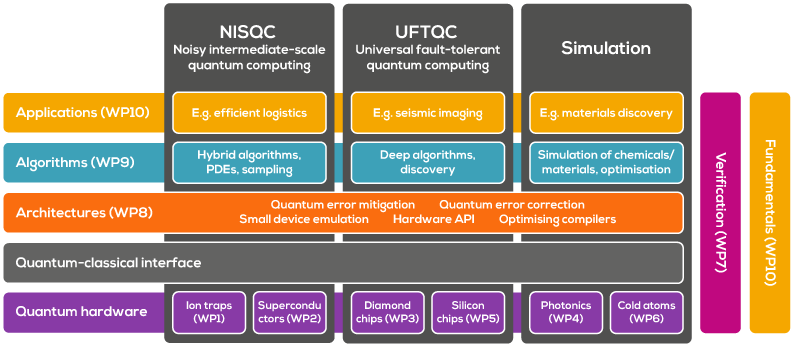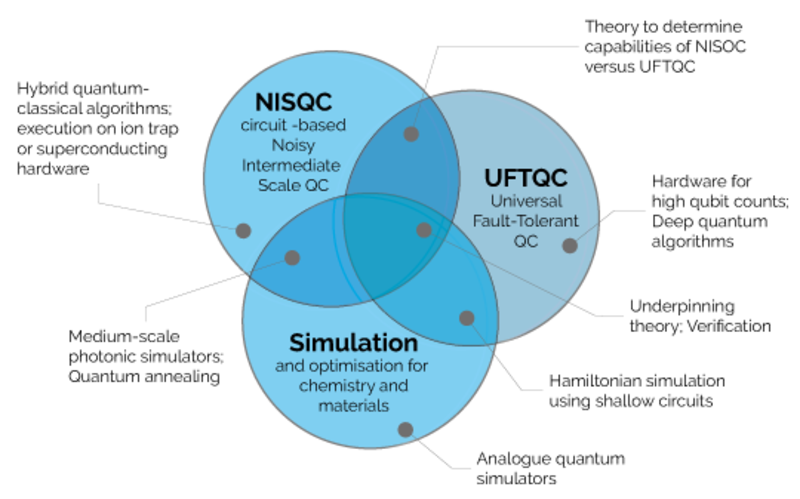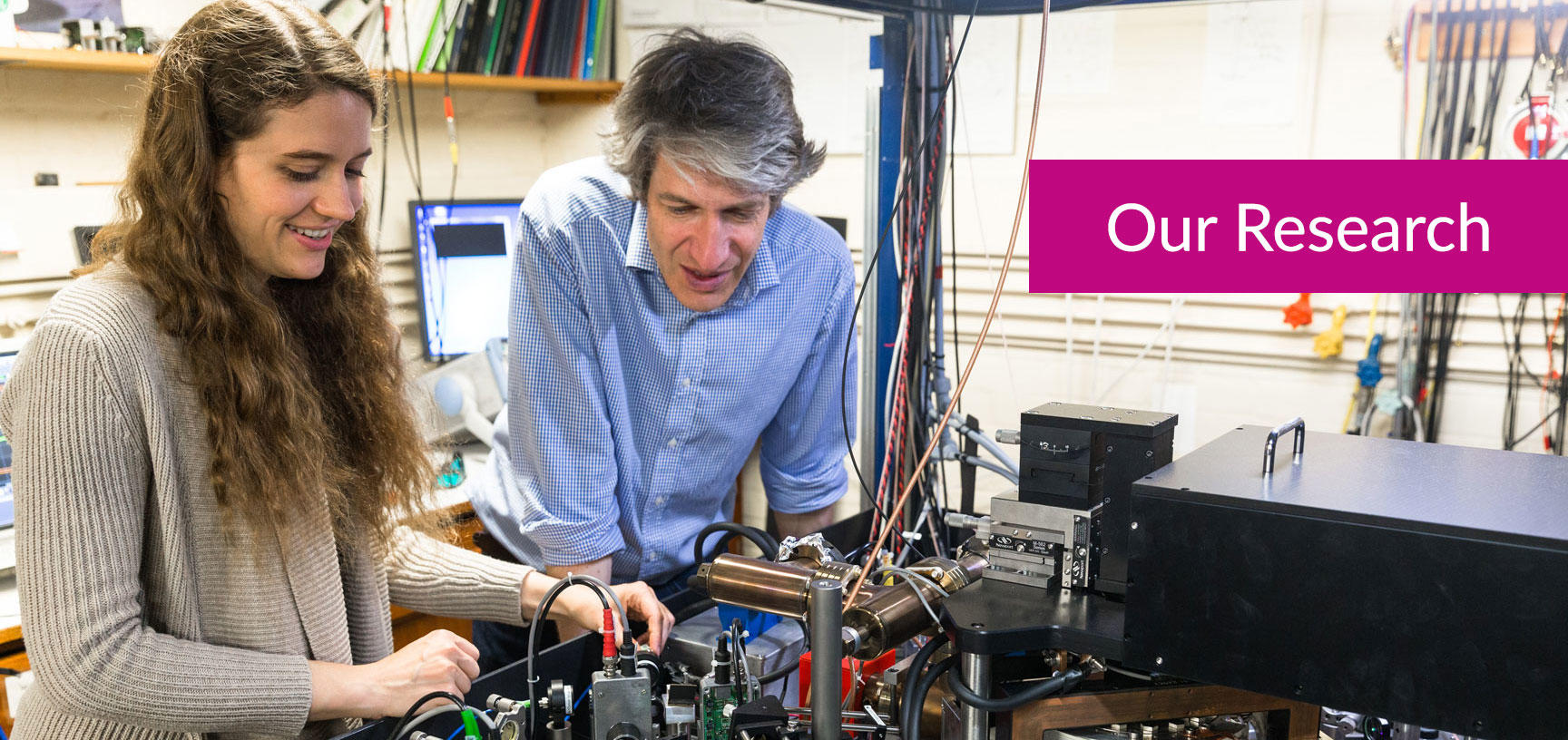Our research
As a technology, Quantum computing is still in its infancy. However, in the same way the development of today's computer hardware began with a single transistor, the QCS Hub's research today is paving the way for the hugely sophisticated quantum computers that will transform our lives over the coming decades.
The Hub brings together the UK's leading academic and industry partners, to tackle key challenges and accelerate the development of quantum computing. Working across a range of promising technologies, our research explores both near-term and long term approaches to quantum computing.
Our work is divided into 10 different areas looking at promising approaches to quantum computing. Investigating intertwined near-term and long-term approaches to quantum computing and simulation, our research covers hardware, software, and fundamental principles.


Three types of Quantum Computing:
NISQC - Noisy Intermediate-scale Quantum Computing (near-term)
Technology is not yet at the point where we can build a perfect general purpose quantum machine. Current technology allows us to create small numbers of qubits, over which we have imperfect control. While these "noisy" qubits place limitations on what quantum devices can currently achieve, this near-term technology still offers a variety of exciting applications.
UFTQC - Universal Fault-Tolerant Quantum Computing (long-term)
Creating a true multi-purpose quantum computer is the long-term aim of all our work. Various challenges need to be overcome to achieve this, including increasing the quantity and reliability of qubits and error handling. Much of the potential of quantum computing relies on our ability to develop. Universal Fault-Tolerant Quantum Computers. The Hub's work is vital in helping us move towards this aim.
Simulation (near-term)
Existing ‘classical’ computers make valiant attempts to mimic complex processes, but are inadequate for solving some of our most important problems. The best modelling of quantum processes can be provided by another quantum process, meaning that quantum simulators offer unique strengths when addressing complex problems in areas such as chemistry, materials discovery and logistics.













